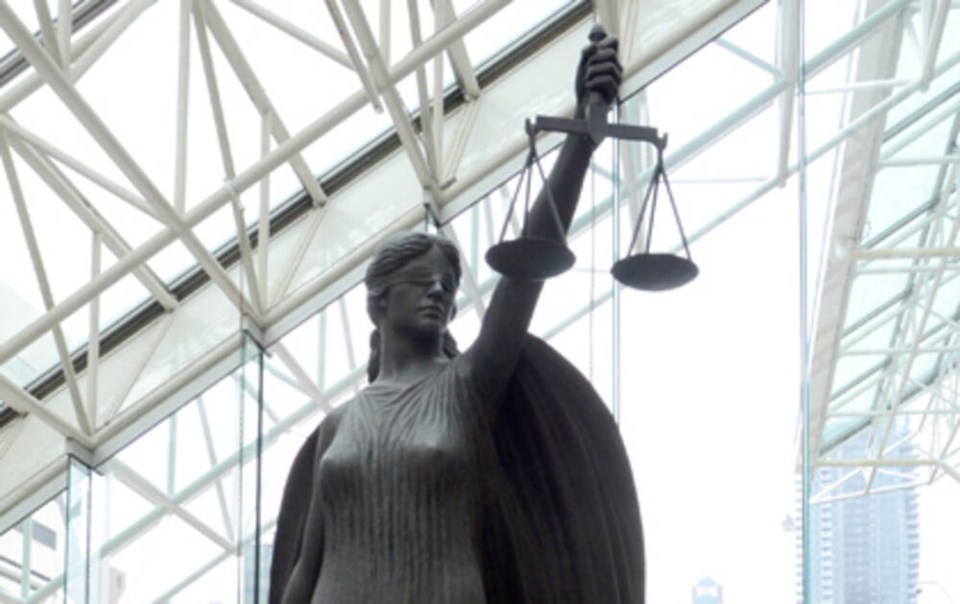A veteran lawyer has lost his appeal of a after not making reasonable inquiries when foreclosing on a property that was allegedly utilized as part of a transnational money laundering scheme.
sa国际传媒 Court of Appeal Justice Harvey Groberman found the law society tribunal did not err in agreeing with the society’s executive director that George Frederick Turner Gregory “turned a blind eye” in failing to make reasonable inquiries before performing legal work under circumstances that should have raised suspicions.
The decision provides further guidance to the society as to what constitutes professional misconduct for lawyers, particularly with respect to anti-money laundering policies.
Gregory was cited by the society on April 16, 2019.
Then, Gregory’s foreclosure work had been flagged by the society after the Surrey property his client sought foreclosure on came under scrutiny from the Globe and Mail.
In summary, the Globe and Mail reported on dozens of foreclosure court filings that showed a pattern of individuals providing loans, with cash proceeds of illicit drug transactions, to recent wealthy Chinese immigrants in exchange for mortgages on their property, as collateral.
, where associated drug traffickers used those proceeds to purchase more fentanyl or related products to ship back to sa国际传媒. If loans were not repaid the alleged money launderers would file foreclosures on the properties owned by the Chinese immigrants.
Gregory’s client, according to the Globe and Mail, had been found with $660,970 in small bills in their cars and in a condo they were using, according to a government forfeiture claim.
“The bills had traces of street drugs on them, including fentanyl. The article stated that “A” (the client) and “B” had been put under surveillance and had been seen selling opioids in parking lots. It further stated that no criminal charges had been laid, but the money had been ordered forfeited to the Provincial Crown,” Gruberman summarized.
This so-called Vancouver Model came to the forefront at the Commission of Inquiry into Money Laundering in sa国际传媒 from 2000-2002.
“Lawyers are by far the most sought-after professional by money launderers,” summarized Saint Mary’s University researcher Stephen Schneider to the commission.
Various recommendations were made for the law society to shore up its policies.
The society investigated Gregory and ultimately alleged Gregory, who had an otherwise “exemplary” record, failed to investigate and identify his client who were foreclosing on a property, thus violating anti-money laundering rules.
While Gregory did not act dishonestly, he made no inquiries about the source of wealth of his clients, the tribunal found.
It was also determined that Gregory could not communicate directly with his Chinese-speaking client, yet he did not hire an independent translator; instead, he relied on the client’s friend.
In the end, the panel found Gregory had filed false affidavits based on the information the clients provided.
On June 8, 2022, the tribunal suspended Gregory for two months.
Gregory’s “professional misconduct lay in advancing the foreclosure proceedings without first making inquiries and receiving responsive information,” noted Gruberman in his decision with Justice Lauri Ann Felon and Justice Gregory James Fitch.
On appeal, Gregory, representing himself, had primarily argued that his failure to make proper inquiries did not carry any imminent risk because no foreclosure had occurred by the time the society investigators notified him of their investigation.
“He says that until the foreclosure case was put before a judge for decision, or there were serious settlement discussions, the “deadline” for reasonable inquiries had not yet been reached. While he acknowledges that he was dilatory in making inquiries (primarily due to his own mental state), he says that he still had time to make them, and that professional misconduct is not established,” Gruberman summarized.
“In my view, the appellant is mistaken in his assertion that until a lawyer’s conduct is such that it will cause imminent harm, it will not constitute professional misconduct."
Gruberman did note “that mere delay in making inquiries, without more, will not always constitute professional misconduct. Such delay will often not serve to further the client’s goals or advance the fraudulent scheme.
“On the other hand, a delay in making inquiries will typically constitute professional misconduct where, during the delay, the lawyer takes steps that advance matters.”
Gruberman did conclude that the tribunal’s second finding of misconduct, that Gregory failed to obtain sufficient client identification, was misplaced, although he noted this “was very much a secondary concern in the hearing.”
As such, Gruberman left it to the law society, represented by Bill Smart in this case, to re-visit its sanction, indicating that the two-month suspension had yet to be enforced.



